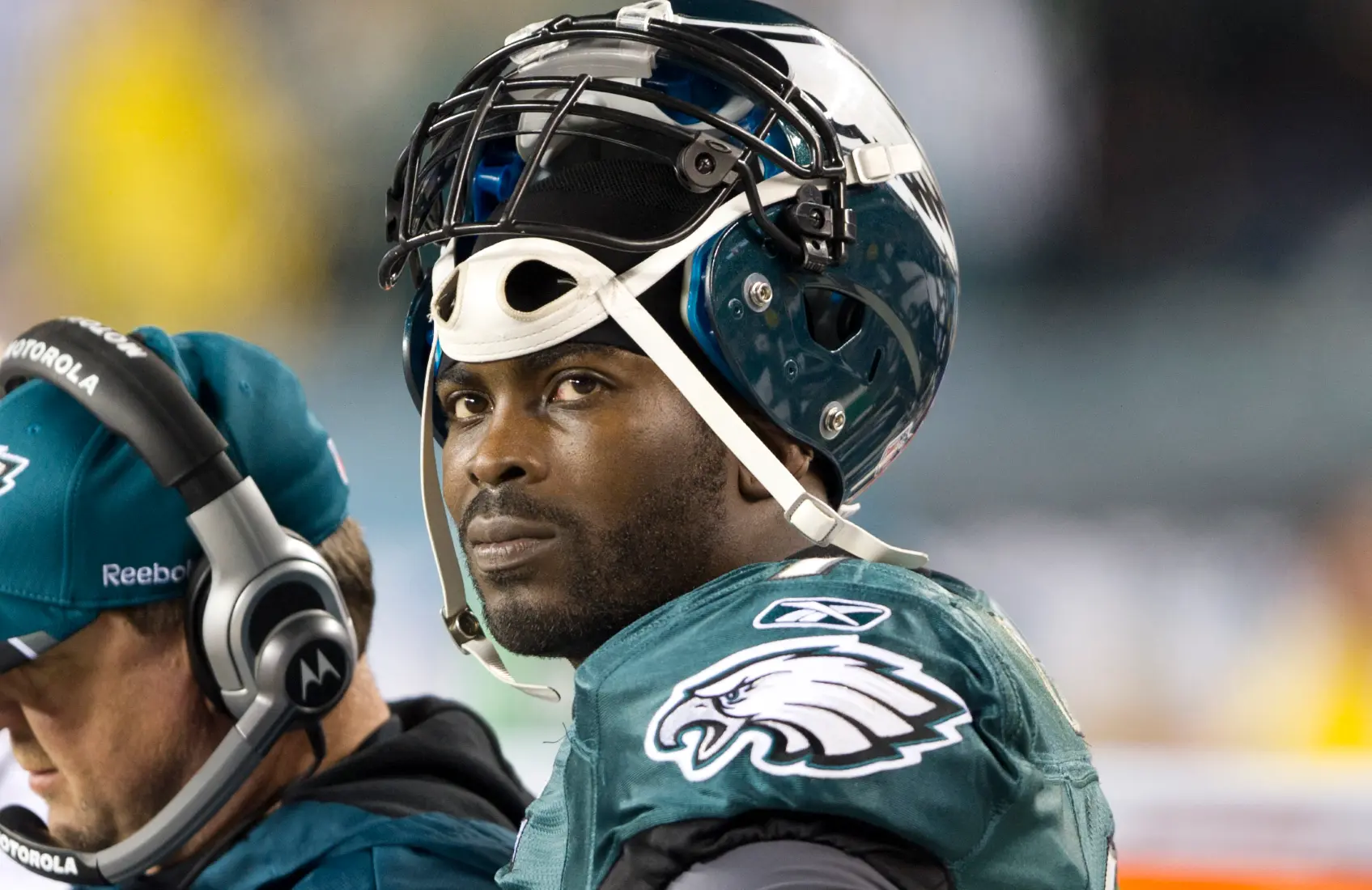ESPN's 30 For 30 May Be at Its Very Best With Crime Stories
-
 ESPN marked the tenth anniversary of its excellent 30 For 30 documentary series with a two-part episode focused on former NFL star Michael Vick (Photo: ESPN)
ESPN marked the tenth anniversary of its excellent 30 For 30 documentary series with a two-part episode focused on former NFL star Michael Vick (Photo: ESPN)Primetimer editor-at-large Sarah D. Bunting knows a thing or two about true crime. She founded the true crime site The Blotter, and is the host of its weekly podcast, The Blotter Presents. Beginning this week, she'll also be contributing a weekly column here on Primetimer dedicated to all things true crime on TV.
It took me almost a month to get around to watching Vick, 30 For 30's two-part installment on legendary NFL quarterback, and convicted dogfighter, Michael Vick — and ordinarily I devour a 30 For 30 as soon as it comes out (even for a sport I don't follow). In the case of Vick, I was apprehensive about images of animal cruelty when the episode got to that part of Vick's life, but I can report with relief that the documentary doesn't dwell on the conditions in Vick's kennels and even blurs out upsetting pictures on PETA protestors' posters. I can also report that Vick reports on Michael Vick's rise, fall, and return with the series' customary and compelling attention to detail.
30 For 30 is so good for a number of reasons, including excellent directors and unparalleled access to footage and interviewees. But I would argue that the series' real gift is its understanding of the way any given sport is, for its fans and for the series' audience, very seldom "just" a sport. The narrative of a season, a championship series, a team or athlete's climb to glory is just that: a narrative, clear-cut, straightforward. It lets the world feel more orderly and organized. But at the same time, dominant sports stories like those of Vick, Pete Rose, Tonya Harding and Kobe can give us a way into other big subjects that we might otherwise struggle to talk about: racism, sexism, mental illness, injustice, grief, loss, and yes, crime. Say what you will about 30 For 30 creator Bill Simmons -- he and the series' filmmakers understand that Michael Vick's NFL journey isn't solely a football story any more than Colin Kaepernick's is. It's also about institutional racism, about corporations abandoning employees who can no longer make them money, and about the people law enforcement chooses to make examples of, and how the media picks sides in a crime story.
And crime stories are often where 30 For 30 shines brightest. I loved the installments about the Celtics/Lakers rivalry and the agonies of the Buffalo Bills, but the ones I return to and recommend usually involve crime stories. Vick isn't perfect. It could easily have been a half hour shorter, with a less pat ending. But director Stanley Nelson deftly illustrates how race and racism informed not just Vick's crime, but the coverage of it, as well as his sentencing. Nelson expects the audience either to understand, or to figure out from watching Vick, that its subject is complex, and to manage conflicting information accordingly.
I've often called 30 For 30 "the sports-documentary series for people who don't like sports or documentaries," and I'm only half-kidding about that, so if you've historically avoided the show, or would like someone to cherry-pick the best crime-adjacent chapters for you, here's my shortlist for the top 30 For 30 crime stories to date:
No Crossover: The Trial Of Allen Iverson. Iverson comes from the same neck of the Virginia "woods" as Michael Vick (and appears in Vick for a few minutes). Director Steve James (Hoop Dreams) directed this episode. James' attempts to explore the circumstances surrounding Iverson's trial for his role in a "racially tinged melee" can feel clumsy and uncomfortable, but that's the point.
OJ: Made In America. I've lauded this Oscar-winner before, so I'll keep this short: it leads with OJ, but it's really about America, and as all truly great crime documentaries do, it asks how we arrived at the crime in question, and where we go next.
The Price Of Gold. Originally titled "Tonya and Nancy," it's about the kneecap strike heard 'round the world. It's also about the toxic coverage of female athletes, especially in "pretty," "feminine" sports like figure skating. Nanette Burstein (The Kid Stays In The Picture) directs.
The Prince Of Pennsylvania. This one is admittedly slightly less comprehensive than Netflix's Team Foxcatcher... but it's also shorter, and the increased focus on the wrestling aspect of John du Pont's (eventually murderous) delusions means it's making different points about the stunting significance of sports, celebrity, and access on certain personalities.
Without Bias. It's hard to explain how completely the death of NBA draftee Len Bias from a cocaine overdose in 1986 overtook the national conversation. Sadly, it's probably not that hard to explain how immediately dog-whistling about crack and "the inner cities" started to drown out real conversations about drugs of abuse in college sports.
30 For 30 is available on demand for cable and satellite subscribers at ESPN.com, or via ESPN's standalone subscription service ESPN+
People are talking about 30 For 30 in our forums. Join the conversation.
Sarah D. Bunting co-founded Television Without Pity, and her work has appeared in Glamour and New York, and on MSNBC, NPR's Monkey See blog, MLB.com, and Yahoo!. Find her at her true-crime newsletter, Best Evidence, and on TV podcasts Extra Hot Great and Again With This.
TOPICS: 30 For 30, ESPN, Bill Simmons, Michael Vick, Documentaries